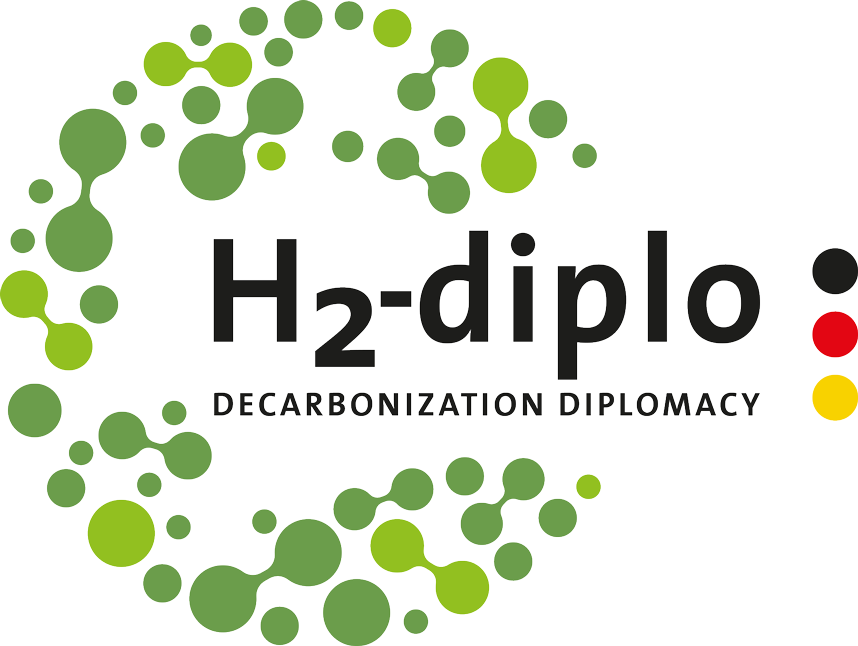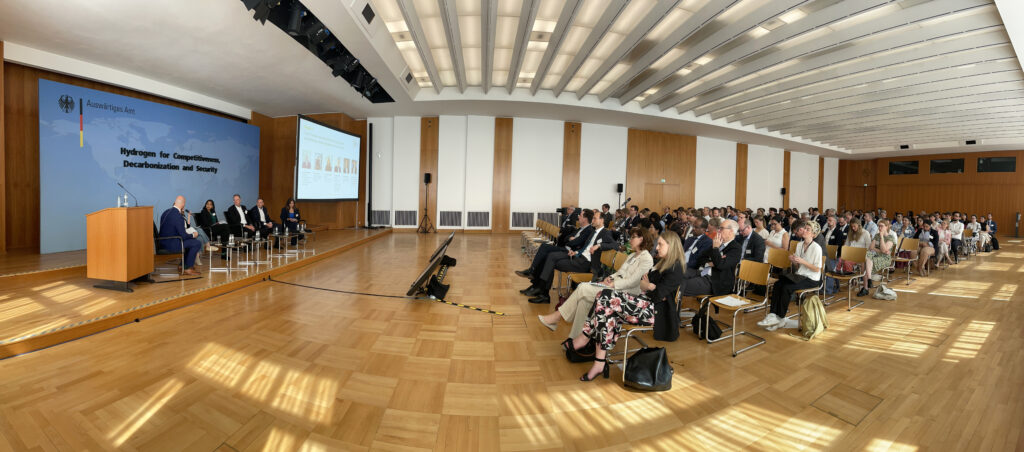H2-diplo hosted the third edition of the Future Forum Green Hydrogen (FFGH) under the auspices of the German Federal Foreign Office in cooperation with the German Council on Foreign Relations (DGAP) in Berlin. Around 150 policymakers, diplomats, researchers, and private sector representatives came together to discuss how green hydrogen can drive industrial competitiveness, energy security, and decarbonization in a shifting geopolitical landscape.
Oliver Rentschler, Director-General for Climate Diplomacy and Geoeconomics at the Federal Foreign Office, opened the forum by highlighting that climate foreign policy is a key pillar of Germany’s external action in advancing prosperity, security, and freedom. The event was moderated by Dr. Holger Klitzing, Head of Unit for Hydrogen Diplomacy and Geopolitics of the Energy Transition at the Federal Foreign Office.
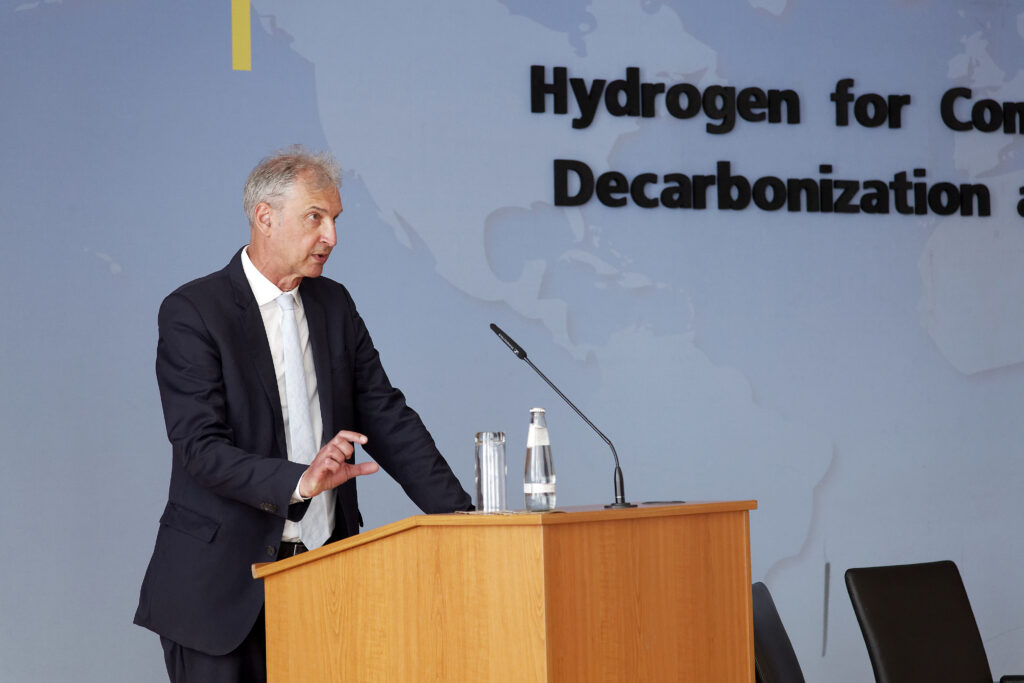
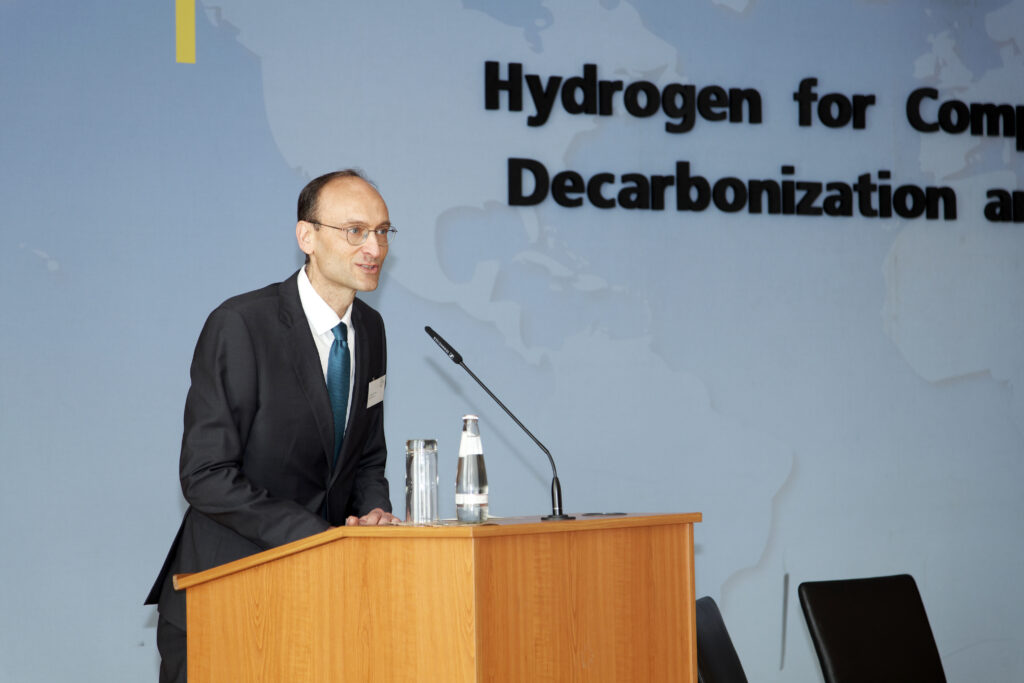
In the opening spotlight, Georg Zachmann (Bruegel) emphasized that hydrogen must be seen in the broader context of infrastructure planning, industrial strategy, and the effective use of scarce resources. He warned against unrealistic import expectations and highlighted the importance of local production and expansion of renewable energy infrastructure in Europe.
The first panel, moderated by Loyle Campbell (DGAP), explored how European industry can remain globally competitive while advancing decarbonization. Parul Kumar (EPICO), Sundus Cordelia Ramli (Topsoe), Alfred Hoffmann (Salzgitter AG) and Hans Dieter Hermes (SEFE) discussed the importance of lighthouse projects, predictable demand, and infrastructure planning. They argued that these factors matter more for a successful hydrogen ramp-up than subsidies alone.
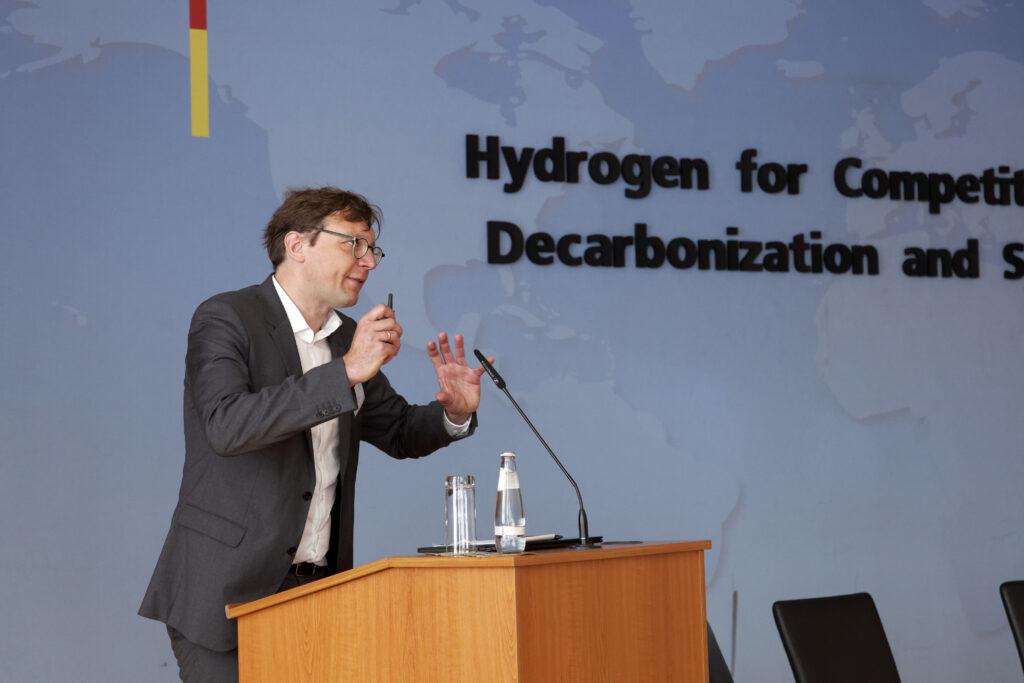
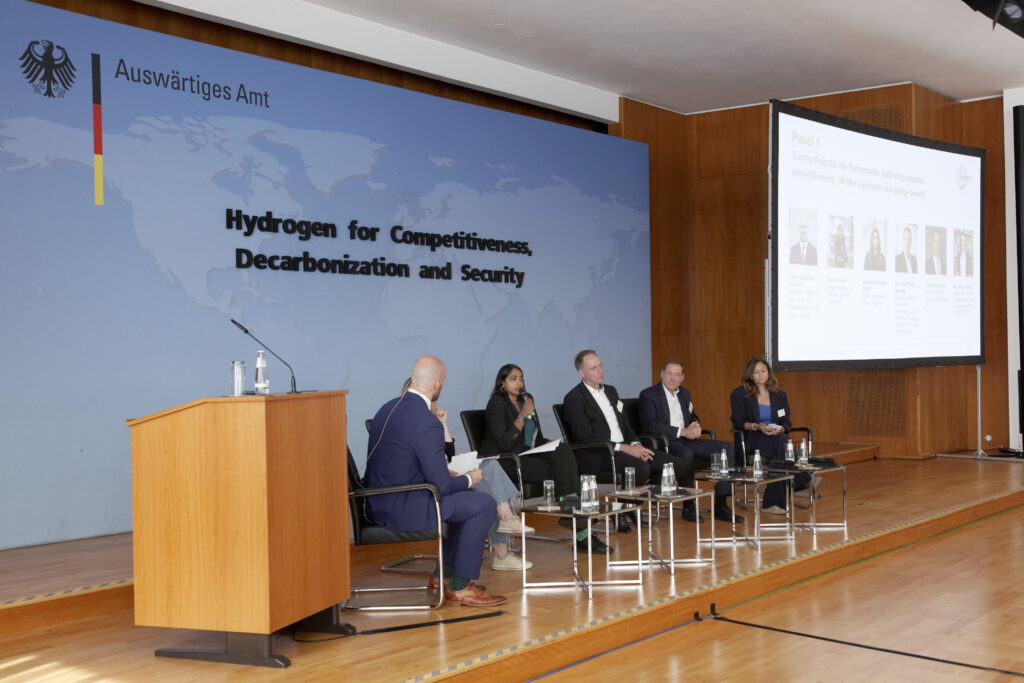
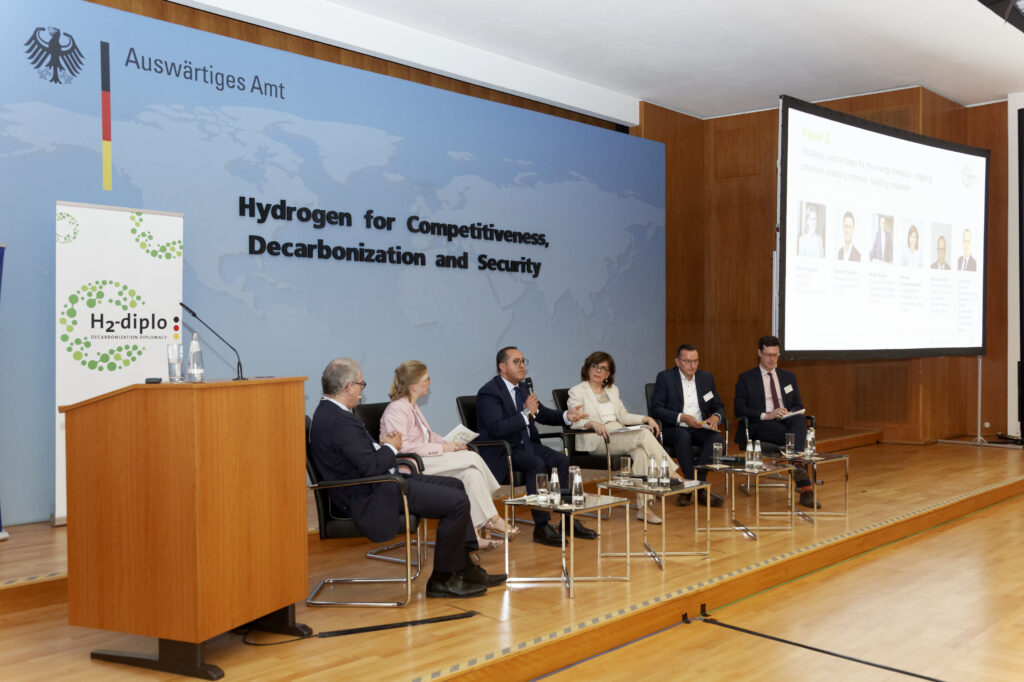
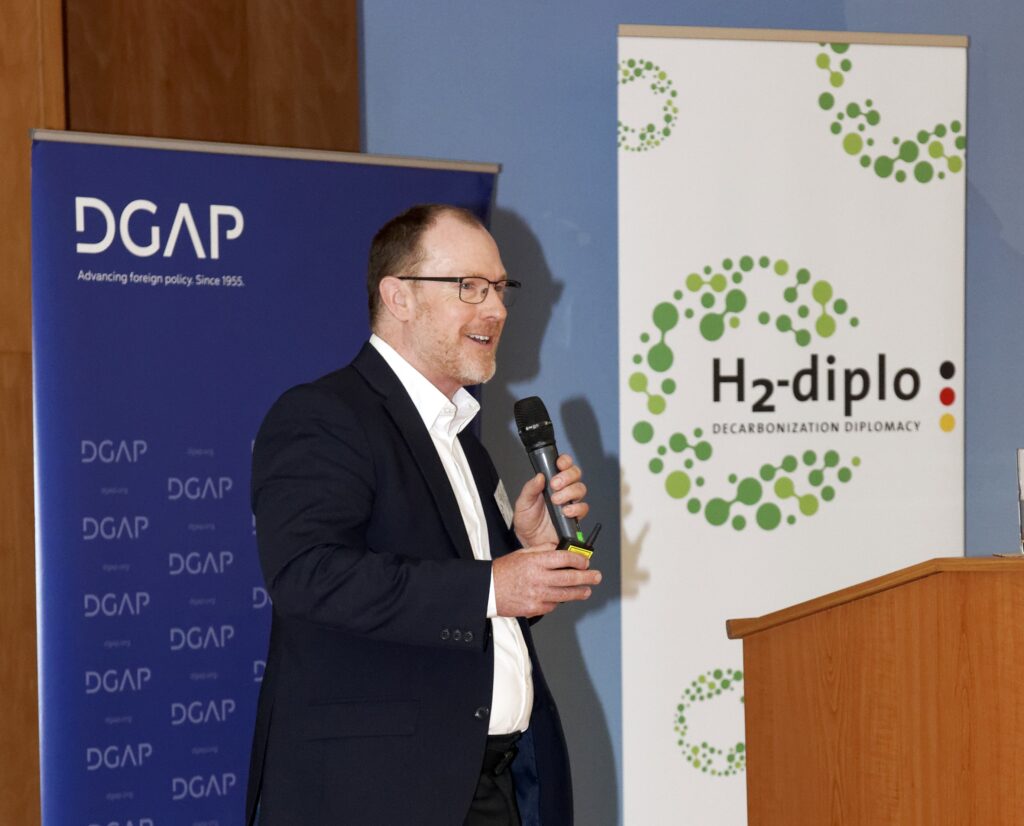
In the second keynote, Michael LaBelle (Central European University) broadened the lens, focusing on the role of green hydrogen in reshaping global value chains, trade relationships, and supply chain resilience. He stressed the need for inclusive partnerships rooted in sovereignty, solidarity and sustainability.
The second panel, moderated by Maria Noack (H2-diplo), addressed international cooperation and infrastructure development. Eamon Drumm (German Marshall Fund), Ralph Bahke (ONTRAS / European Hydrogen Backbone), Badr Ikken (CGEM Morocco), Norela Constantinescu (IRENA) and Marcus Hicken (Federal Foreign Office) examined the future of role of energy in the transatlantic relations, cross-border financing mechanisms, and how geopolitical diversification can strengthen resilience and create shared value in the global energy transition.
Dr. Kira Vinke (DGAP) closed the event by underlining that industrial transformation is not just a technical or economic endeavour – but a societal and geopolitical process that requires inclusive dialogue and long-term planning.
The Future Forum Green Hydrogen offered a timely reflection on the evolving role of green hydrogen in the energy transition. Discussions underscored that while hydrogen has broad potential, its most critical use lies in decarbonising hard-to-abate sectors where no viable alternatives exist. To unlock this potential, regulatory clarity and enabling infrastructure are essential to mobilise private investment and scale markets beyond reliance on subsidies. Looking ahead, Europe’s industrial competitiveness will depend on its ability to navigate shifting economic geographies and forge strategic, innovation-driven partnerships that deliver shared value within the EU and globally.
We sincerely thank all speakers and participants for their valuable insights and contributions. H2-diplo remains committed to supporting this transformation by fostering dialogue, enabling cooperation, and advancing the development of resilient hydrogen ecosystems.
Photo credits: We thank Anja Bäcker for the professional event photography.
For more news about the H2-diplo activities, follow us on LinkedIn: H2-diplo – Decarbonization Diplomacy | LinkedIn
